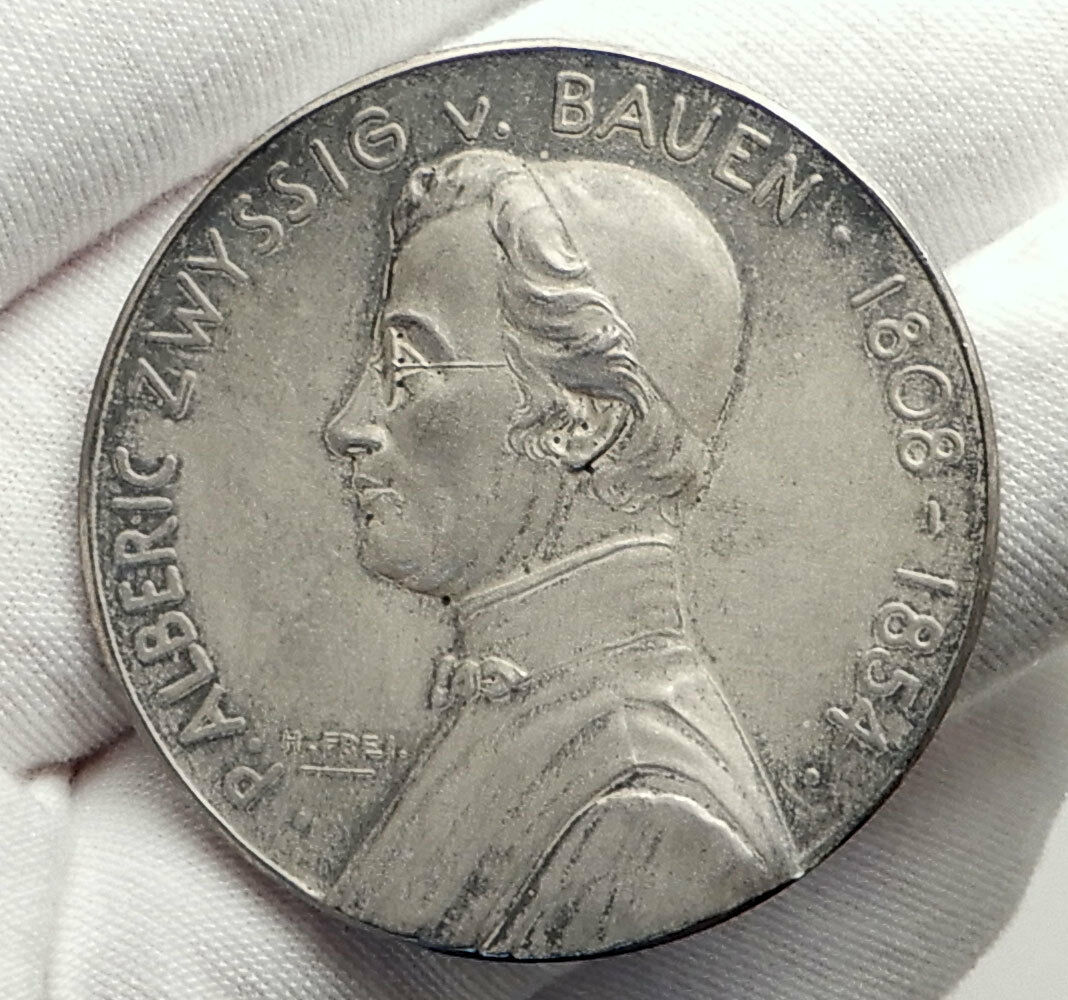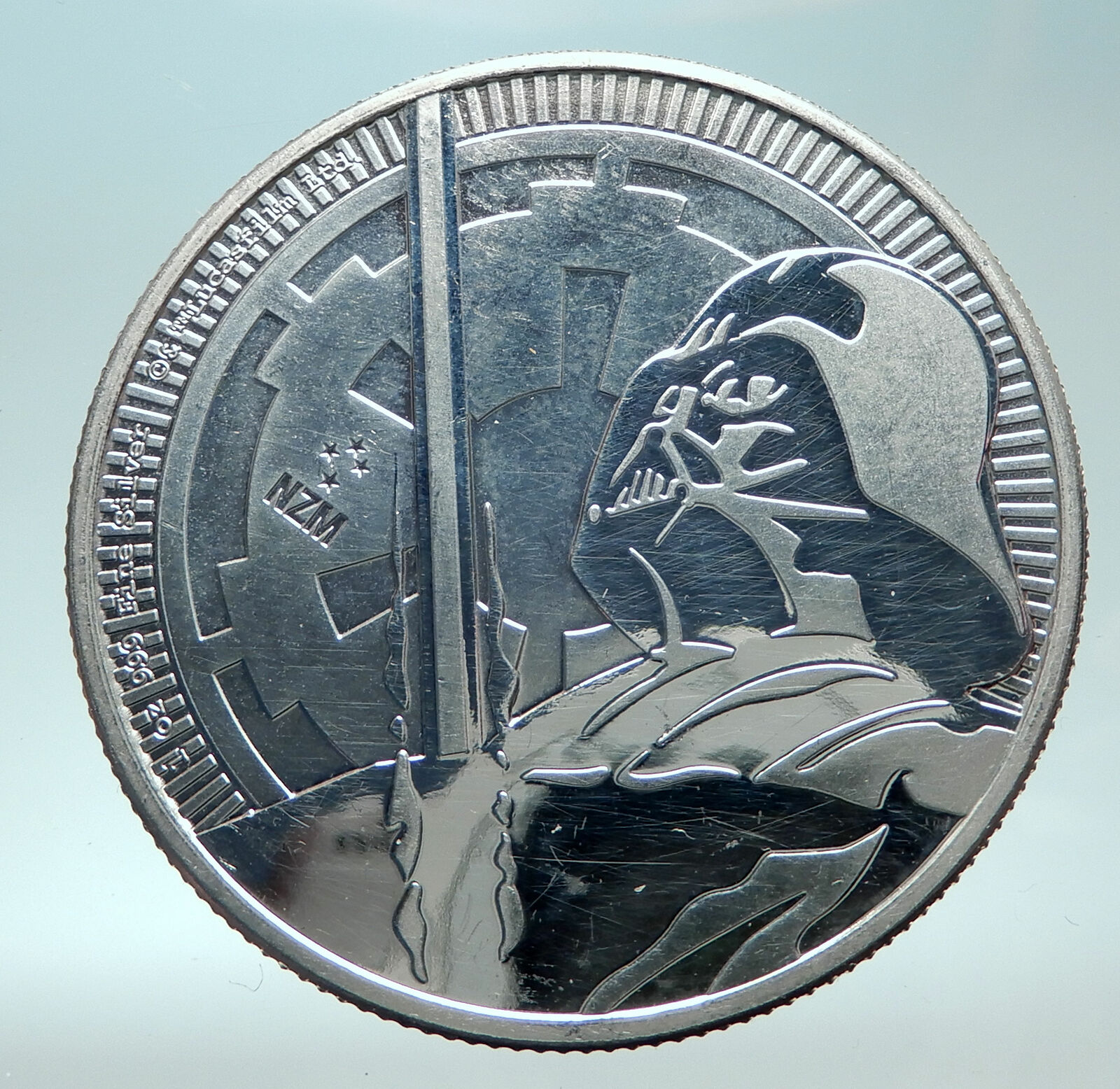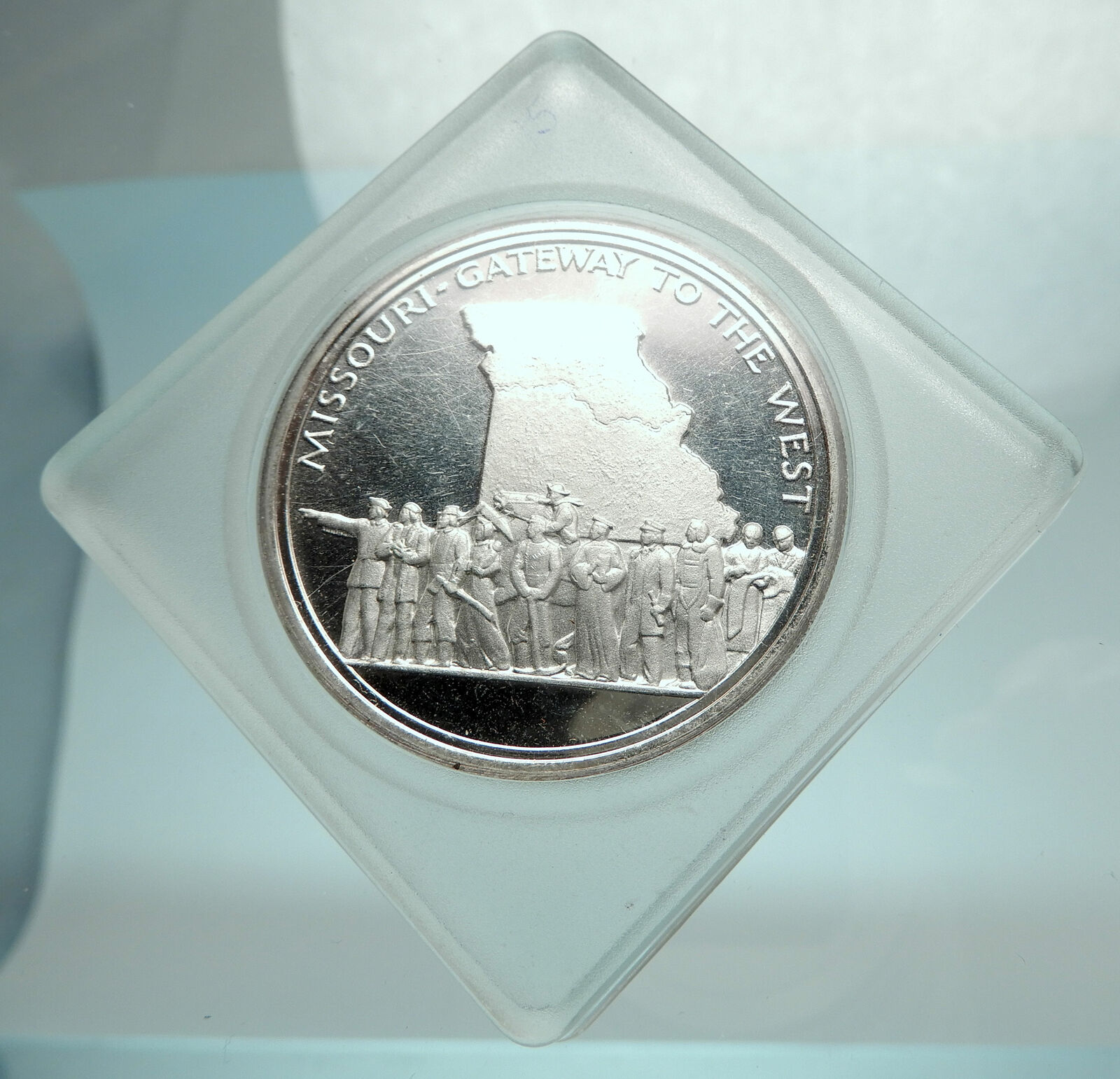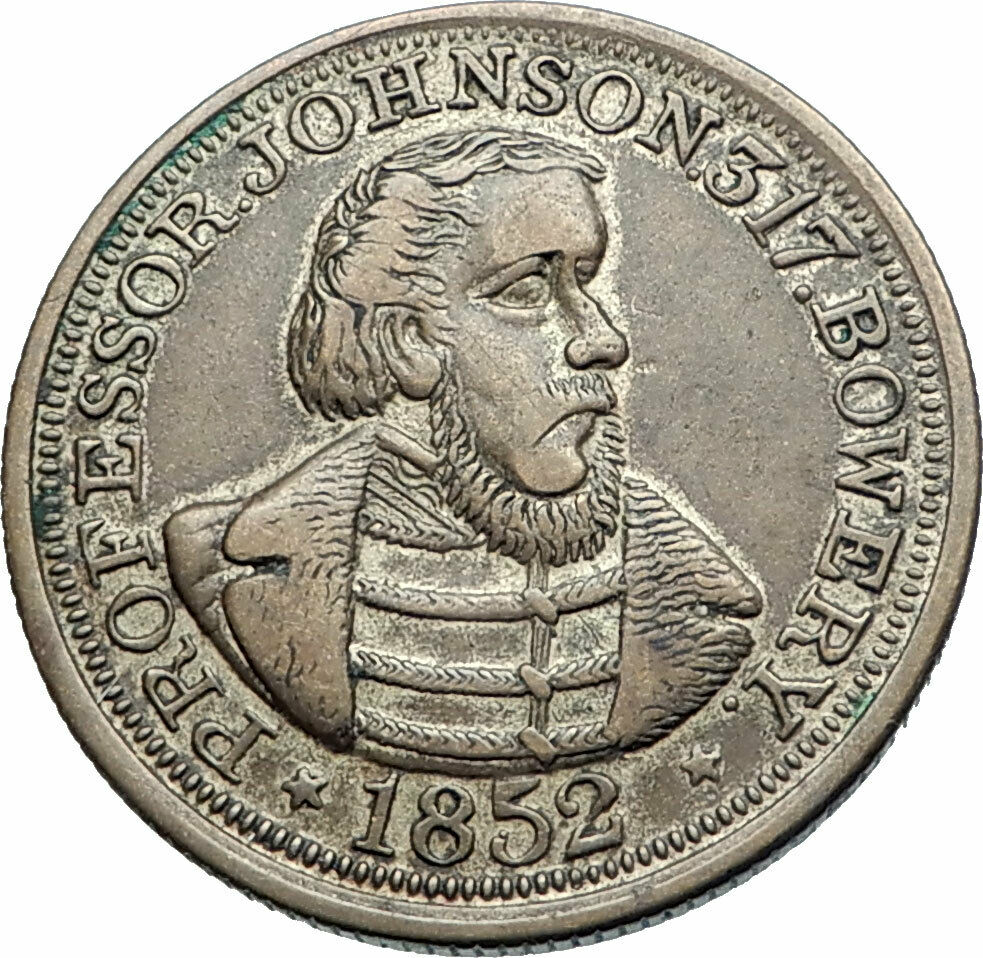|
Germany – German States – Prussia.
Frederick (Friedrich) II ‘The Great’ – King of Prussia & Elector of Brandenburg: 31 May 1740 – 17 August 1786
1782 Silver 1/24th Thaler 18mm (1.67 grams) .222 Silver (0.0148 oz. ASW)
Reference: KM# 296, Schön DM# 139, Olding FR# 139, 140, 160, 168, 171, Schr# 703-715, 719, 730, 740-742
17 FR 82, Crown above monogram.
✱ 24 ✱ ꟾ EINEN ꟾ THALER ꟾ A, Branches below.
You are bidding on the exact item pictured, provided with a Certificate of Authenticity and Lifetime Guarantee of Authenticity.
_-_Google_Art_Project.jpg/220px-Friedrich_der_Große_(1781_or_1786)_-_Google_Art_Project.jpg) Frederick II (German: Friedrich II.; 24 January 1712 – 17 August 1786) ruled the Kingdom of Prussia from 1740 until 1786, the longest reign of any Hohenzollern king, at 46 years. His most significant accomplishments during his reign included his military victories, his reorganization of Prussian armies, his patronage of the arts and the Enlightenment and his final success against great odds in the Seven Years’ War. Frederick was the last Hohenzollern monarch titled King in Prussia and declared himself King of Prussia after achieving sovereignty over most historically Prussian lands in 1772. Prussia had greatly increased its territories and became a leading military power in Europe under his rule. He became known as Frederick the Great (Friedrich der Große) and was nicknamed Der Alte Fritz (“The Old Fritz”) by the Prussian people and eventually the rest of Germany. Frederick II (German: Friedrich II.; 24 January 1712 – 17 August 1786) ruled the Kingdom of Prussia from 1740 until 1786, the longest reign of any Hohenzollern king, at 46 years. His most significant accomplishments during his reign included his military victories, his reorganization of Prussian armies, his patronage of the arts and the Enlightenment and his final success against great odds in the Seven Years’ War. Frederick was the last Hohenzollern monarch titled King in Prussia and declared himself King of Prussia after achieving sovereignty over most historically Prussian lands in 1772. Prussia had greatly increased its territories and became a leading military power in Europe under his rule. He became known as Frederick the Great (Friedrich der Große) and was nicknamed Der Alte Fritz (“The Old Fritz”) by the Prussian people and eventually the rest of Germany.
In his youth, Frederick was more interested in music and philosophy than the art of war. Nonetheless, upon ascending to the Prussian throne he attacked Austria and claimed Silesia during the Silesian Wars, winning military acclaim for himself and Prussia. Toward the end of his reign, Frederick physically connected most of his realm by acquiring Polish territories in the First Partition of Poland. He was an influential military theorist whose analysis emerged from his extensive personal battlefield experience and covered issues of strategy, tactics, mobility and logistics.
Considering himself “the first servant of the state”, Frederick was a proponent of enlightened absolutism. He modernized the Prussian bureaucracy and civil service and pursued religious policies throughout his realm that ranged from tolerance to segregation. He reformed the judicial system and made it possible for men not of noble status to become judges and senior bureaucrats. Frederick also encouraged immigrants of various nationalities and faiths to come to Prussia, although he enacted oppressive measures against Polish Catholic subjects in West Prussia. Frederick supported arts and philosophers he favored as well as allowing complete freedom of the press and literature. Most modern biographers agree that Frederick was primarily homosexual, and that his sexual orientation was central to his life and character. Frederick is buried at his favorite residence, Sanssouci in Potsdam. Because he died childless, Frederick was succeeded by his nephew, Frederick William II, son of his brother, Augustus William.
Nearly all 19th-century German historians made Frederick into a romantic model of a glorified warrior, praising his leadership, administrative efficiency, devotion to duty and success in building up Prussia to a great power in Europe. Historian Leopold von Ranke was unstinting in his praise of Frederick’s “heroic life, inspired by great ideas, filled with feats of arms … immortalized by the raising of the Prussian state to the rank of a power”. Johann Gustav Droysen was even more extolling.[5] Frederick remained an admired historical figure through Germany’s defeat in World War I. The Nazis glorified him as a great German leader pre-figuring Adolf Hitler, who personally idolized him. Associations with him became far less favorable after the fall of the Nazis, largely due to his status as one of their symbols. However, by the 21st century a re-evaluation of his legacy as a great general and enlightened monarch returned opinion of him to favour.
 Germany, officially the Federal Republic of Germany, officially the Federal Republic of  Germany is a federal parliamentary republic in western-central Europe. It includes 16 constituent states and covers an area of 357,021 square kilometres (137,847 sq mi) with a largely temperate seasonal climate. Its capital and largest city is Berlin. With 81 million inhabitants, Germany is the most populous member state in the European Union. After the United States, it is the second most popular migration destination in the world. Germany is a federal parliamentary republic in western-central Europe. It includes 16 constituent states and covers an area of 357,021 square kilometres (137,847 sq mi) with a largely temperate seasonal climate. Its capital and largest city is Berlin. With 81 million inhabitants, Germany is the most populous member state in the European Union. After the United States, it is the second most popular migration destination in the world.
Various Germanic tribes have occupied northern Germany since classical antiquity. A region named Germania was documented before 100 CE. During the Migration Period the Germanic tribes expanded southward. Beginning in the 10th century, German territories formed a central part of the Holy Roman Empire. During the 16th century, northern German regions became the centre of the Protestant Reformation.
The rise of Pan-Germanism inside the German Confederation resulted in the unification of most of the German states in 1871 into the Prussian-dominated German Empire. After World War I and the German Revolution of 1918-1919, the Empire was replaced by the parliamentary Weimar Republic. The establishment of the Third Reich in 1933 led to World War II and the Holocaust. After 1945, Germany split into two states, East Germany and West Germany. In 1990, the country was reunified.
 In the 21st century, Germany is a great power and has the world’s fourth-largest economy by nominal GDP, as well as the fifth-largest by PPP. As a global leader in several industrial and technological sectors, it is both the world’s third-largest exporter and importer of goods. Germany is a developed country with a very high standard of living sustained by a skilled and productive society. It upholds a social security and universal health care system, environmental protection and a tuition free university education. In the 21st century, Germany is a great power and has the world’s fourth-largest economy by nominal GDP, as well as the fifth-largest by PPP. As a global leader in several industrial and technological sectors, it is both the world’s third-largest exporter and importer of goods. Germany is a developed country with a very high standard of living sustained by a skilled and productive society. It upholds a social security and universal health care system, environmental protection and a tuition free university education.
Germany was a founding member of the European Union in 1993. It is part of the Schengen Area, and became a co-founder of the Eurozone in 1999. Germany is a member of the United Nations, NATO, the G8, the G20, and the OECD. The national military expenditure is the 9th highest in the world. Known for its rich cultural history, Germany has been continuously the home of influential artists, philosophers, musicians, sportsmen, entrepreneurs, scientists and inventors.
|





_-_Google_Art_Project.jpg/220px-Friedrich_der_Große_(1781_or_1786)_-_Google_Art_Project.jpg) Frederick II (German: Friedrich II.; 24 January 1712 – 17 August 1786) ruled the Kingdom of Prussia from 1740 until 1786, the longest reign of any Hohenzollern king, at 46 years. His most significant accomplishments during his reign included his military victories, his reorganization of Prussian armies, his patronage of the arts and the Enlightenment and his final success against great odds in the Seven Years’ War. Frederick was the last Hohenzollern monarch titled King in Prussia and declared himself King of Prussia after achieving sovereignty over most historically Prussian lands in 1772. Prussia had greatly increased its territories and became a leading military power in Europe under his rule. He became known as Frederick the Great (Friedrich der Große) and was nicknamed Der Alte Fritz (“The Old Fritz”) by the Prussian people and eventually the rest of Germany.
Frederick II (German: Friedrich II.; 24 January 1712 – 17 August 1786) ruled the Kingdom of Prussia from 1740 until 1786, the longest reign of any Hohenzollern king, at 46 years. His most significant accomplishments during his reign included his military victories, his reorganization of Prussian armies, his patronage of the arts and the Enlightenment and his final success against great odds in the Seven Years’ War. Frederick was the last Hohenzollern monarch titled King in Prussia and declared himself King of Prussia after achieving sovereignty over most historically Prussian lands in 1772. Prussia had greatly increased its territories and became a leading military power in Europe under his rule. He became known as Frederick the Great (Friedrich der Große) and was nicknamed Der Alte Fritz (“The Old Fritz”) by the Prussian people and eventually the rest of Germany.  Germany, officially the Federal Republic of
Germany, officially the Federal Republic of  Germany is a federal parliamentary republic in western-central Europe. It includes 16 constituent states and covers an area of 357,021 square kilometres (137,847 sq mi) with a largely temperate seasonal climate. Its capital and largest city is Berlin. With 81 million inhabitants, Germany is the most populous member state in the European Union. After the United States, it is the second most popular migration destination in the world.
Germany is a federal parliamentary republic in western-central Europe. It includes 16 constituent states and covers an area of 357,021 square kilometres (137,847 sq mi) with a largely temperate seasonal climate. Its capital and largest city is Berlin. With 81 million inhabitants, Germany is the most populous member state in the European Union. After the United States, it is the second most popular migration destination in the world. In the 21st century, Germany is a great power and has the world’s fourth-largest economy by nominal GDP, as well as the fifth-largest by PPP. As a global leader in several industrial and technological sectors, it is both the world’s third-largest exporter and importer of goods. Germany is a developed country with a very high standard of living sustained by a skilled and productive society. It upholds a social security and universal health care system, environmental protection and a tuition free university education.
In the 21st century, Germany is a great power and has the world’s fourth-largest economy by nominal GDP, as well as the fifth-largest by PPP. As a global leader in several industrial and technological sectors, it is both the world’s third-largest exporter and importer of goods. Germany is a developed country with a very high standard of living sustained by a skilled and productive society. It upholds a social security and universal health care system, environmental protection and a tuition free university education.




